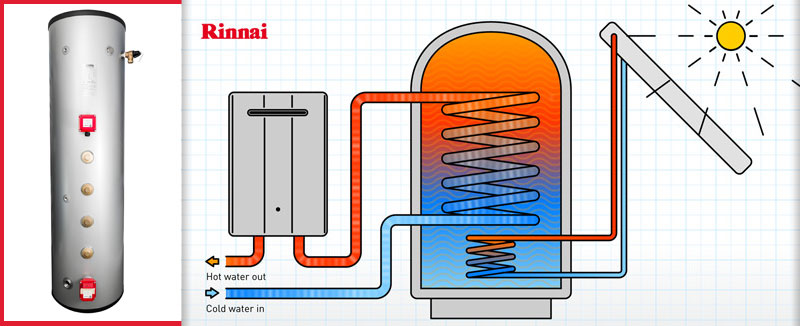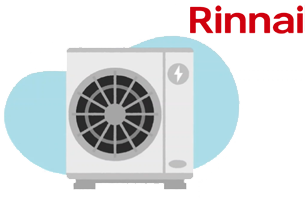Holmwood House was opened in 1922 as a boy’s school by Mr and Mrs E F Duggan with the aim ‘to develop the individuality and abilities of each child, to make them self-reliant and adaptable’. The world has changed a great deal in the school’s first century, but it still upholds those underlying values.
Except for wartime evacuation, the school has remained on the same site, two miles from the centre of Colchester. In 1985 Holmwood House began accepting girls, and in 2006 the nursery was opened in Great Horkesley. The site needed to upgrade and update its hot water delivery system. The new hot water delivery system – comprising of 3 x Rinnai N Series 1600i units – was installed by SDF Mechanical.
Shaun Fuller, who started SDF in January 2018 has been working within the HVAC industry since he was 17 years old and has gained a wide range of experience over the last 13+ years. From working on domestic boilers within households to large industrial steam boilers in factories, he has a wide range of skills to meet all requirements throughout all sectors. Since starting the business Shaun has progressed SDF Mechanical Services into having a large customer base in all sectors in the industry and built close relationships with them. SDF Mechanical Services are Gas Safe and Oftec Registered and have a wide range of qualifications to be able to carry out various different types of work to the highest of standards.
For Rinnai Harry Barton commented,
“The diminutive size, lightweight nature (less than 30kg) and high performance of 960 litres per hour at a 50 degree rise ensured that the Rinnai solution was an ideal system for this project. Having run some capital expenditure, operational expenditure, and carbon modelling, we also saved the school money and reduced its carbon footprint. “
Rinnai’s hot water heating units have been certified by the British Standards Institution (BSI) for use as hydrogen blends ready. The range was subjected to rigorous testing and analysis by the BSI and the product range is ‘Hydrogen BLEND 20% ready’ with the I2HY20 gas category certificate for all its products.
All Rinnai continuous flow condensing water heaters are guaranteed to provide limitless volumes of temperature accurate hot water (in excess of 1500 litres per hour) this is combined with market leading turn down ratios (13-1) and 96% efficiency.
Extensive testing also demonstrates that multiples of its existing ranges are retrospectively compatible with future hydrogen blending including all N series models already installed in the UK.
The Rinnai Sensei N Series continuous flow hot water heater range offers a more compact, enhanced combustion design that allows for easier installation, superior operational performance as well as ease of serviceability.
The Rinnai Sensei N Series is the first ever continuous flow hot water heating unit manufactured with stainless steel heat exchangers to be available in the UK – this gives a greatly extended working life at optimum performance to each of the four models in the range. Added to this are the market leading extended warranties, that accompany the hydrogen Blend-ready and Bio-LPG ready instantaneous water heaters.
The four models are:
-the N1600i giving 954 litres per hour (at 50 degrees)
-the N1600e (external) also giving 954 litres per hour (at 50 degrees)
-the N1300i giving 775 litres per hour
-the N1300e also giving 775 litres per hours of temperature controlled hot water at 50 degrees.
The two 1600s have load profiles of XXL and are water efficiency class A rated, while the 1300s are load profile XL and are also water efficiency class A rated.
All the range is also low-NOx (Less than 26ppm meaning they gain additional points under BREEAM) and the futureproofed continuous flow water heater utilises Rinnai’s patented advanced burner technology with a 13-1 turn down ratio – the largest on the market combined with 96% efficiency rating. Integral controls on the units enable the water heater to achieve high efficiencies because of advanced burner control and high modulation ranges.
This wide range of modulation means that energy usage is completely optimised as the water heater through smart inbuilt controls will only heat the water to the temperature required thus preserving energy.
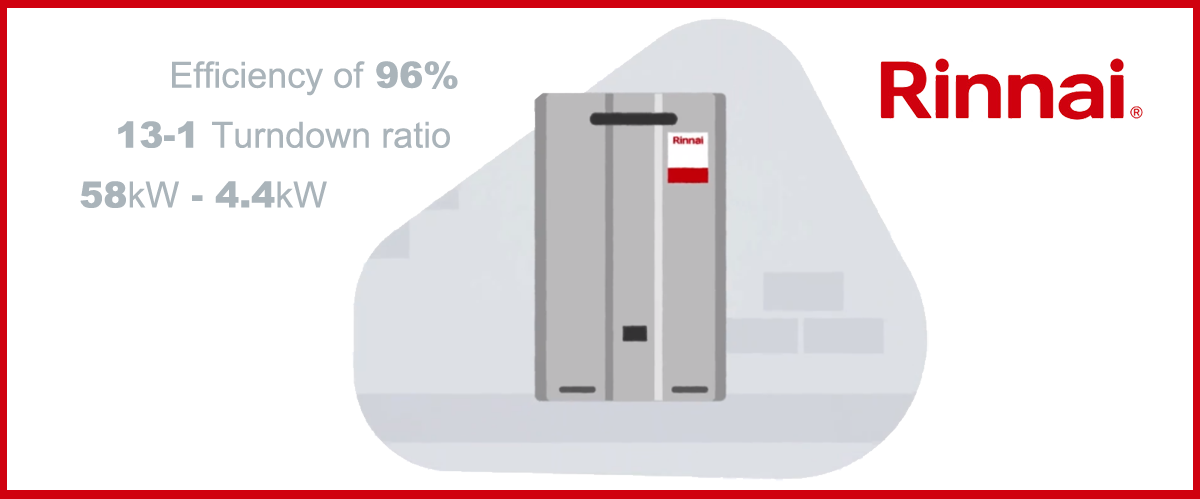
RINNAI’S H3 DECARBONISATION OFFERS PATHWAYS & CUSTOMER COST REDUCTIONS FOR COMMERCIAL, DOMESTIC AND OFF-GRID HEATING & HOT WATER DELIVERY
www.rinnai-uk.co.uk/about us/H3
Rinnai’s H3 range of decarbonising products include hydrogen / BioLPG ready technology, hybrid systems, and a wide range of LOW GWP heat pumps and solar thermal. Also, within Rinnai’s H3 range is Infinity hydrogen blend ready and BioLPG ready continuous flow water heaters which are stacked with a multitude of features that ensure long life, robust & durable use, customer satisfaction and product efficiency.
Rinnai’s range of decarbonising products – H1/H2/H3 – consists of heat pump, solar, hydrogen in any configuration, hybrid formats for either residential or commercial applications. Rinnai’s H3 range of products offer contractors, consultants and end users a range of efficient, robust and affordable decarbonising appliances which create practical, economic and technically feasible solutions. The range covers all forms of fuels and appliances currently available – electric, gas, hydrogen, BioLPG, rDME solar thermal, low GWP heat pumps and electric water heaters.
Rinnai H1 continuous water heaters and boilers offer practical and economic decarbonization delivered through technological innovation in hydrogen and renewable liquid gas ready technology.
Rinnai’s H1 option is centred on hydrogen, as it is anticipated that clean hydrogen fuels will become internationally energy market-relevant in the future; Rinnai water heaters are hydrogen 20% blends ready and include the world’s first 100% hydrogen-ready hot water heating technology.
Rinnai H2 – Decarbonization simplified with renewable gas-ready units, Solar Thermal and Heat Pump Hybrids. Rinnai H2 is designed to introduce a practical and low-cost option which may suit specific sites and enable multiple decarbonisation pathways with the addition of high performance.
Rinnai H3 – Low-GWP heat pump technology made easy – Rinnai heat pumps are available for domestic and commercial usage with an extensive range of 4 – 115kW appliances.
Rinnai’s H3 heat pumps utilise R32 refrigerant and have favourable COP and SCOP.
Rinnai is a world leading manufacturer of hot water heaters and produces over two million units a year, operating on each of the five continents. The brand has gained an established reputation for producing products that offer high performance, cost efficiency and extended working lives.
Rinnai’s commercial and domestic continuous flow water heaters offer a limitless supply of instantaneous temperature controlled hot water and all units are designed to align with present and future energy sources. Rinnai condensing water heaters accept either existing fuel or hydrogen gas blends. Rinnai units are also suited for off-grid customers who require LPG and BioLPG or rDME.
Rinnai products are UKCA certified, A-rated water efficiency, accessed through multiple fuel options and are available for purchase 24/7, 365 days a year. Any unit can be delivered to any UK site within 24 hours. Rinnai offer carbon and cost comparison services that will calculate financial and carbon savings made when investing in a Rinnai system. Rinnai also provide a system design service that will suggest an appropriate system for the property in question. Rinnai offer comprehensive training courses and technical support in all aspects of the water heating industry including detailed CPD’s. More information can be found on Rinnai’s website and its “Help Me Choose” webpage.
 Creating a Healthier Way of Living
Creating a Healthier Way of Living
CLICK HERE TO VISIT RINNAI UK
CLICK HERE to email Rinnai UK
CLICK HERE For more information on the RINNAI product range visit





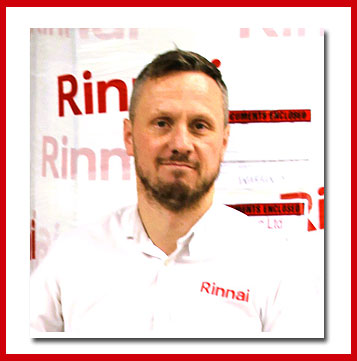
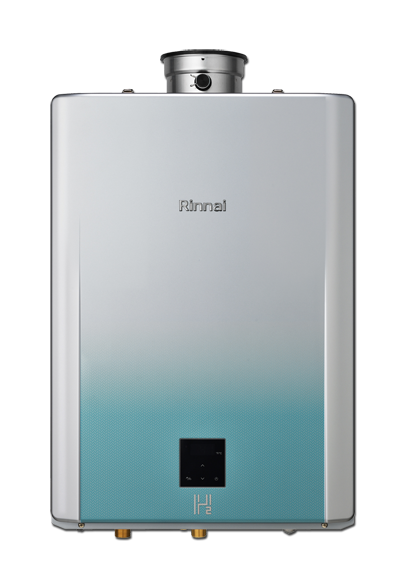




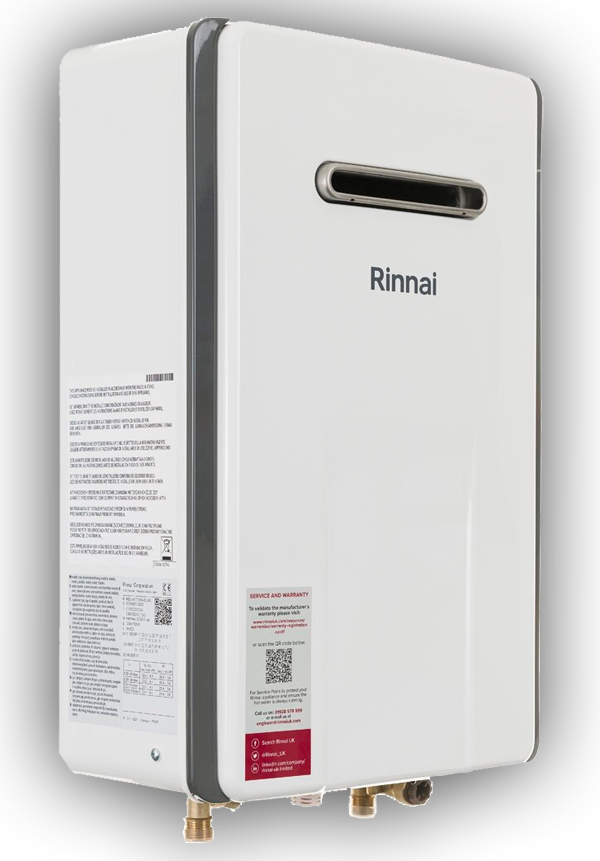 to any and all domestic properties or small businesses that need instant, economic and temperature-controlled volumes of hot water. The temperature range for all three models is between 37-65 degrees centigrade making them ideal for comfortable ablutions and heavy-duty high volume commercial cleaning for instance in restaurants where high temperature can cut through oil and grease.
to any and all domestic properties or small businesses that need instant, economic and temperature-controlled volumes of hot water. The temperature range for all three models is between 37-65 degrees centigrade making them ideal for comfortable ablutions and heavy-duty high volume commercial cleaning for instance in restaurants where high temperature can cut through oil and grease.
 As the UK is now firmly in an era of energy transition it is important that all interested parties – heating engineers, contractors, consultants and end-users – should be aware of what alternative energy is currently available and future options being actively considered.
As the UK is now firmly in an era of energy transition it is important that all interested parties – heating engineers, contractors, consultants and end-users – should be aware of what alternative energy is currently available and future options being actively considered.

